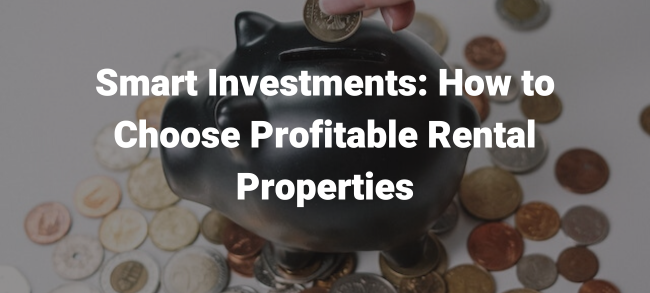
Overview of Landlord-Tenant Laws in Florida
Florida is one of the largest states in the country by population. Recent estimates say there are over 20 million people living there. Out of this, 13.3% are renters. To help bring order to the millions of tenants and landlords in the state, Florida has put together an extensive landlord-tenant law.
The Florida Landlord and Tenant Statues guides the landlord-tenant relationship in the state. Below is an overview of Florida landlord-tenant laws.
The Florida Fair Housing Act
The Federal Fair Housing Act of 1968 protects tenants in Florida. The Act states that Florida landlords may not:
- Create unfair rules, terms of privileges in a leasing agreement
- Retaliate against or intimidate tenants who exercise their fair housing rights
- Limit tenants to different facilities or services
- Bar tenants from access to rental-related memberships
- Prevent tenants from renting or negotiating for housing
- Prevent tenants from inspecting housing
- Discriminate based on a tenant’s protected characteristic such as handicap, race, national origin, color, religion, sex, familial status, including pregnancy or adoption.
Other than these 7 protected characteristics, Florida’s landlord-tenant law doesn’t include any other additional classes.
Florida Written Lease or Rental Agreement
A lease is a legally binding agreement between landlords and their tenants. It lays the foundation upon which both the landlord and tenant promise to uphold for the entire rental term. In Florida, the lease agreement may either be written or oral.
That being said, most leases are usually written because oral agreements can often be misunderstood. Oral agreements can also be difficult to prove should there arise a dispute in the future.
A lease should include legal details like:
- Parties to the lease
- Description of the property
- Terms of rent
- Rights of entry
- Alterations to the property
- Repairs and damages
- Pet details
- Occupants of the property
- Security deposits details
- Lease dates and termination
Florida Lease Termination and Eviction Rules
Florida rental laws specify when and how a lease can be terminated. A lease can be terminated when:
- Either party breaks the written rental agreement in material noncompliance, or;
- When the lease runs its entire course
In any case, the one terminating the tenancy is obligated under the Florida landlord-tenant law to give the other party an advance written notice. The following are advance written notices that either party must give the other when a lease is nearing its end:
- Seven-day written notice to terminate a weekly lease
- Fifteen-day notice to terminate a monthly lease
- Thirty-day written notice to terminate a quarterly lease
- Sixty-day notice to terminate a yearly lease
For non-payment of rent by the tenant, the landlords are required to give the tenant an eviction notice to either leave the property or pay due rent. Unless a different date is specified in the lease or rental agreement, rent is generally due on the first day of every month.
If a tenant breaks the lease in any other way, the tenant will have seven days to either move out or cure the violation.
Florida Tenant Responsibilities
At all times during the rental period, a tenant shall:
- Use and operate in a reasonable manner all facilities and appliances in the property.
- Ensure that they and any guests conduct themselves in a manner that doesn’t reasonably disturb their neighbors.
- Not destroy, deface, damage, impair, or remove any part of the premises or property belonging to the landlord.
- Keep plumbing fixtures clean and in good repair.
- Remove garbage from the dwelling in a clean and sanitary manner.
- Comply with all building, housing and health codes and keep the dwelling clean and sanitary.
Florida Landlord Responsibilities
The landlord’s responsibilities depend on the type of rental premises.
· Apartment
At all times during the leasing period, landlords of a dwelling unit other than a single-family home or duplex shall provide:
- Functioning facilities for running water, hot water, and heat during winter.
- Garbage disposal facilities and outside receptacles.
- Clean and safe conditions of common areas.
- Locks and keys.
- Make reasonable provisions for the extermination of bed bugs, wood-destroying organisms, ants, mice, and rats.
Landlords must also comply with the requirements of applicable building, housing, and health codes.
· Single-family home or duplex
The landlord of a single-family home or duplex at all times during the tenancy shall:
- Comply with the requirements of applicable building, housing, and health codes.
- Maintain premises in good repair and ensure that it is capable of resisting normal forces and loads.
Security Deposit Laws in Florida
- Tenants in Florida have the right to be notified once the landlord receives their security deposit.
- A landlord in Florida has several options for storing a tenant’s deposit during the lease term. The options are: the landlord can purchase a surety bond in the amount of the deposit; the landlord can place it in an interest-bearing account, or the landlord can place it in a non-interest bearing account.
- Florida landlord-tenant law doesn’t place a limit on how much a landlord can charge for a security deposit.
- After a tenant moves out, landlords in Florida have 15 days to return all or part of the money that remains to the tenant.
Tenants can sue landlords for not returning their security deposits in a small claims court. The amount shouldn’t exceed $5,000. For an amount exceeding this, the lawsuit should be filed in a district court.
Notice of Entry
A Florida tenant has the right to quiet enjoyment in their home. Before a landlord can enter a tenant’s apartment, Florida lease laws require that they give proper notice in most situations. The landlord must give a responsible notice. Specifically, the landlord must give at least a twelve-hour notice to make repairs.
The landlord may enter a tenant’s premises under the following circumstances:
- When the tenant is absent from the premises for a period of time equal to one-half the time for periodic rental payments.
- In case of emergency.
- When the tenant unreasonably withholds consent, or;
- With the consent of the tenant.
Objecting to legal entries by the tenant may result in:
- A difficult working relationship
- A termination at the end of the month or a nonrenewal at the end of the lease
- An eviction
Landlord Retaliation in Florida
The landlord cannot retaliate against a tenant for exercising their rights regarding the rental unit. Examples of legal tenant acts that could trigger landlord revenge include:
- The tenant has complained to the landlord or another government or local agency about the landlord’s failure to meet his or her obligations.
- The tenant has pursued a right granted to them by local or Federal Fair Housing laws.
- The tenant is a service member and the tenant has given the landlord the required notice to terminate the rental agreement.
- The tenant has complained to a government or housing authority about an apparent building, health, or safety violation at the property.
- A tenant has become a member of, has supported, or has created a tenant’s union or other organization.
Examples of landlord retaliation in Florida include:
- The landlord attempts to harass or intimidate the tenant to get the tenant to leave.
- The landlord refuses to make needed repairs.
- The landlord files to evict the tenant.
- The landlord decreases services to the tenant.
- The landlord increases a tenant’s rent.
If these actions are done with the purpose of seeking revenge against a tenant, the actions will be considered acts of retaliation. Typically, they attract legal consequences.
There you have it. An overview of the landlord-tenant laws in Florida. For any specific legal question, please seek professional legal advice.
If you require any help with your Nevada rental unit don’t hesitate to contact us today!

Advantage Realty Services Inc











